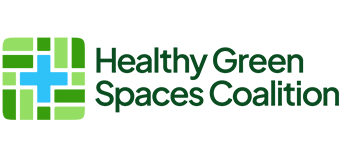Bill McDonnell
Water Efficiency Manager (Retired)
Metropolitan Water District (MET)
Focus Area: Utility Water Conservation
Bill McDonnell Water Efficiency Manager at Metropolitan Water District, Los Angeles, California (Retired). His career spanned five decades in the field of water and energy efficiency designing, implementing and managing programs. Bill still sits on the Boards of the Alliance for Water Efficiency and the California Irrigation Institute.
Expert Q&A
What obstacles did you face with the turf replacement program in Southern California.
A: From a utility perspective – it’s been a management and oversight issue. For example, there is some simplicity to providing rebates for indoor products including toilets, urinals, and showerheads. Indoor plumbing fixtures have an engineering life and small rebate value from say $25 to $200 dollars per item. You could list the plumbing fixtures that qualify for a rebate and have customers email in a receipt and get a rebate check, so it was fairly straightforward.
But, going outside, it’s a different ballgame. It requires more work and much more funding, and you’re dealing with aesthetics of someone’s home which is more complicated and personal. And there’s an oversight element – inspections and challenges to ensure the project reflects real water savings, and so on. Outside renovation is typically more complicated and expensive too – often requiring multiple purchases and vendors. In the end, those rebates typically only cover a portion of the overall cost of removal – meaning the homeowners are responsible for a pretty hefty sum of out of pocket costs.
Finally, there’s the question of water savings – Can you actually quantify the savings and rationalize the costs involved? Does the cost per gallon of water saved warrant the expense?
What is the future of water conservation?
A: Leaks and landscape! Indoor high efficiency residential plumbing is pretty saturated so on the homeowner outside leaks and landscaping are where the water efficiency improvements lay. These areas can represent a majority of “lost” water use in a home. It’s important to make sure water isn’t simply wasted because of a leak somewhere.
Outdoors, improving technology like smart irrigation controllers, efficient sprinkler heads, drip irrigation and landscape education training can save water outdoors without a lot of funding required by the water utility.
What new construction programs would be most beneficial to water conservation?
A: The indoor fixtures in a new home are already pretty efficient as they meet both state and federal standards. If homes came “pre-landscaped” in the front and back with climate appropriate plants, storm water capture system, efficient irrigation etc. that would be cool, assuming homeowners like that.
What are the top cost-effective things homeowners can do to reduce outdoor water use?
A: Controllers – Smart controllers are a great starting point. We have technology to understand the current weather conditions and use water accordingly, so why not use it.
Audits – Another great starting point if your water utility has a free water audit program. An expert can come out and tell where you need to focus on to become more water efficient. It’s a great program to help homeowners know where and how to save energy.
New sprinkler heads – To go along with your smart controller you need efficient irrigation sprinkler heads. Watering at the correct time of day but utilizing the old distribution system with your old heads will save you little to no water.
For water conservation managers that don’t have large budgets what are the best things I can do?
A: Do a lot on a shoestring budget: Programs should be tailored to your area but there are some universal concepts that work:
Education: Classes either online or in person for homeowners is a great way to reach people on a shoestring budget. Giving homeowners the educational and resource tools to make the landscape changes on their own with utility rebates. Education can also be for the landscape industry. They need to know how to install and maintain the water efficient landscapes that homeowners are requesting.
Audits or Surveys: Having staff do in person surveys for homeowners can help them on where and how to start their new landscaping journey.
Demonstration Garden: City or water agencies need to practice what they preach. Demonstration gardens at City Hall or other high-profile areas with signage. Docent tours can be set up to educate homeowners.
Partnerships: With other water agencies, energy utilities, local garden clubs, local nurseries, colleges and universities etc. A partnership with an energy utility could mean that the energy utility is already going to homes to offer energy audits – could they add a water component to the audit? Could the energy utility add a water component to classes they are having on energy efficiency? Can the local garden club that has an awards program each year for the most beautiful home garden add a category for most beautiful water efficient garden? These are just a few ideas.
How can I create a program that saves water and helps local businesses?
A: Think locally …using local resources. Partner with a local nursery on classes or workshops or offer reduced prices on water efficient plants at a local nursery. Demonstration gardens could be done in sections with each section done by a local landscape contractor who gets named in the signage.










